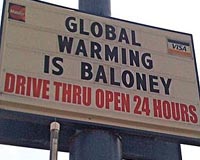 |
Paris (AFP) March 14, 2011 Japan's nuclear crisis will boost interest in clean renewables such as solar and wind power but may also sharpen demand for coal, oil and gas, whose carbon pollution drives climate change, experts said Monday. Nuclear energy provides around 14 percent of the world's electricity mix, although this is overwhelmingly concentrated in six countries, and is not going to disappear off the map any time soon, they said. "The accident in Japan is not a death sentence for nuclear power," stressed Jean-Marie Chevalier, an economist and energy expert at the Universite Paris Dauphine, pointing to the hundreds of billions of dollars invested in existing reactors and plants under construction. But the scare surrounding the crippled reactors at the earthquake-struck Fukushima plant means nuclear's renaissance after the 1986 Chernobyl disaster will be crimped, at least in the short term. Governments in India, the United States and Europe are under pressure to review safety standards or slap a moratorium on new projects, and Germany and Switzerland have already said they will be on hold plans to extend the operational life of existing plants, pending safety reviews. "At the very least, we would expect significant investments in nuclear to be delayed, or deferred, for a period of one to two years," said Rupesh Madlani, renewables analysts at Barclays Capital in London. In the short run, any energy shortfall in Japan, and elsewhere, will be filled by fossil fuels, said other experts. "Disruption to the Japanese nuclear industry means that they are going to be relying increasingly on oil and gas for power generation," said Julian Lee, an analyst at the Centre for Global Energy Studies, a London think tank backed by the oil industry. Jacques Percebois, head of the Centre for Research on Energy Economy and Law at Monpellier University, agreed the fossil fuel industry would be early beneficiaries as it could provide gigawatts of quick power. "Those who declare a moratorium on new nuclear energy should understand that the available solution for meeting large-scale energy demands today is not solar panels, it's gas," he told AFP. Burning natural gas contributes to global warming, but less so than oil, and far less than coal. "The major risk is that, facing an energy shortage, coal-fired reactors with coal imported from Australia are built," said Cedric Philibert, an analyst in the renewable energy division of the International Energy Agency (IEA) in Paris. "Japan's greenhouse gas emissions would skyrocket." At the same time, though, a slowdown in nuclear investment would also steer money into renewable energies, which since the 2008 financial crisis have been struggling to expand their share of the world's power market, several experts said. "This should lead to an incremental upside in terms of demand for wind and solar projects," said Madlani of Barclays. "It could mean 10 percent more wind and solar being demanded each year for the next couple of years," he told AFP. Madlani also pointed to current high oil prices and the increasing cost of oil extraction, especially after the BP disaster in the Gulf of Mexico. For Christiana Figueres, the United Nations' top climate change official, the meltdown will probably push up the costs of nuclear energy, making renewables more competitive. "Japan will change mid-term world energy scenarios," she said in a Twitter message on Sunday from a meeting of the International Renewable Energy Agency (IRENA) in Berlin.
Share This Article With Planet Earth
Related Links Climate Science News - Modeling, Mitigation Adaptation
 It's All In A Name: Global Warming Versus Climate Change
It's All In A Name: Global Warming Versus Climate ChangeAnn Arbor MI (SPX) Mar 11, 2011 Many Americans are skeptical about whether the world's weather is changing, but apparently the degree of skepticism varies systematically depending on what that change is called. According to a University of Michigan study published in the forthcoming issue of Public Opinion Quarterly, more people believe in "climate change" than in "global warming." "Wording matters," said Jonathon ... read more |
|
| The content herein, unless otherwise known to be public domain, are Copyright 1995-2010 - SpaceDaily. AFP and UPI Wire Stories are copyright Agence France-Presse and United Press International. ESA Portal Reports are copyright European Space Agency. All NASA sourced material is public domain. Additional copyrights may apply in whole or part to other bona fide parties. Advertising does not imply endorsement,agreement or approval of any opinions, statements or information provided by SpaceDaily on any Web page published or hosted by SpaceDaily. Privacy Statement |